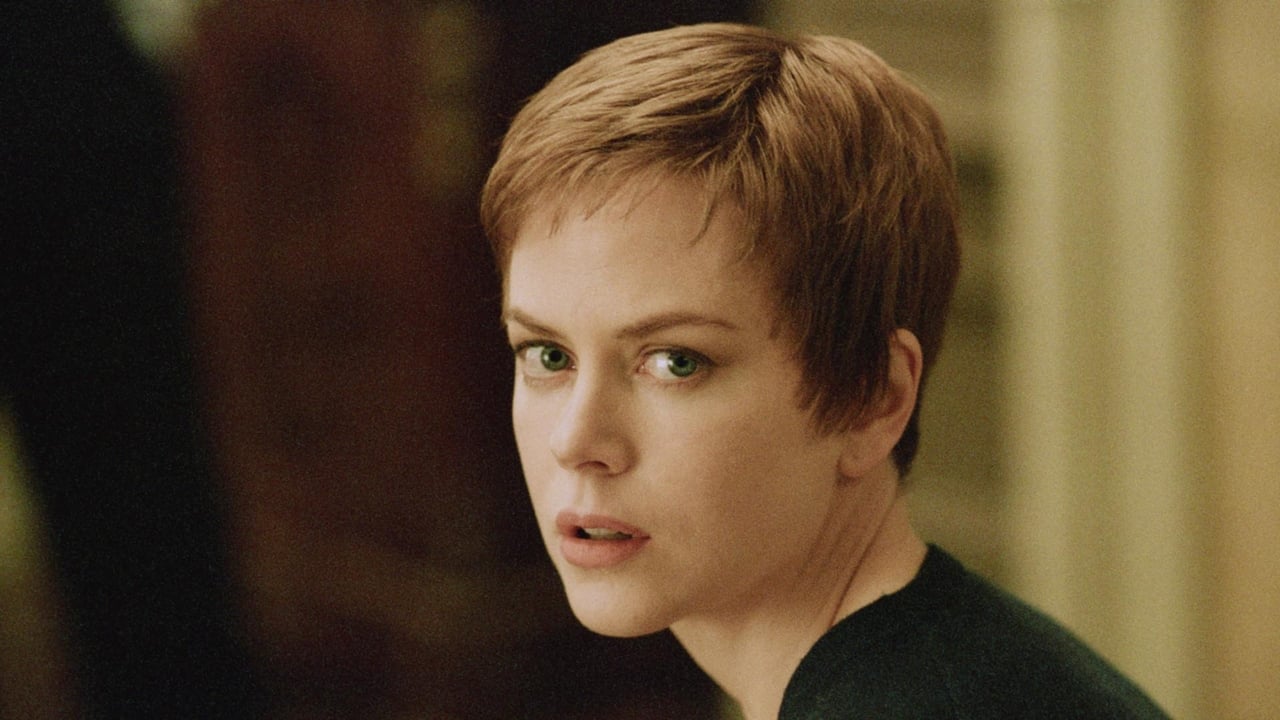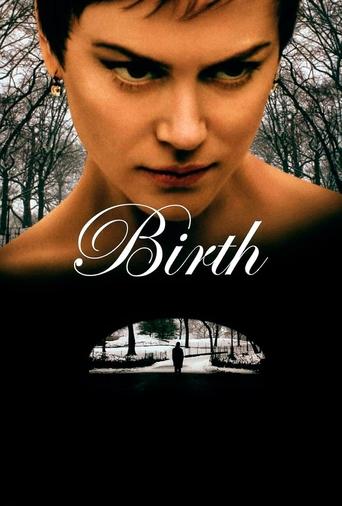

Nicole Kidman plays widow Anna, who is engaged to be remarried. A swift turn-of-events has Anna meeting ten-year-old Sean, who tells her he is has been reincarnated from the spirit of her first husband. As Anna couldn't get the boy out of her mind and the boy is adamant he is her first husband, this puts the engagement between Anna and her fiancé on the line.The story is both unsettling, yet breathtaking and full of suspense, filmed in a way that captures the beauty of the drama and the unfolding events; it leaves you wondering if there is life or some other dimension or world after death.To top it off, the acting is convincing and the scenery and atmosphere wrapping the entire movie are fascinating.Grade B
... View MoreThis film is something I would recommend almost anyone, and I do not say this lightly. It is so well done and the Director and DP are highly talented individuals! The film is shot beautifully, with the Director showing his willingness to PUSH things into the realm of serious avant-garde, (at least these days!) with regards the length of his close-ups, and also his having characters express emotion in a very very understated manner a lot of the times. I am talking about the faces of the people around Anna while they are being obviously SHOCKED by what this strange boy knows!! The score is magnificent and I would love to buy it on Cd and probably will. The production design I found to be top notch also, even if it was not necessarily a difficult challenge to most people's minds. The acting of ALL principals was terrific, and Bacall was a real treat I must say!! Nicole Kidman although ever so slightly understated in conveying desperately intense emotions,nevertheless manages to make us understand the power of what she is feeling. I would guess that her performance was probably driven by the Director due to the fact that I KNOW she can be far more intense when she wants to (Australia). Huston is great as the poor guy who is blind-sided by this fascinating and interestingly enough TRUE SCENARIO (it happens is what I mean). Reincarnation is a fact of our existence that I have NO DOUBTS ABOUT ANYMORE, I only wonder if the scenario in this picture is within the realm of possibility due to the fact that we usually have at the very least SEVERAL years go by if not a century before we incarnate in this dimension. So beyond the fact that I question the logic of the idea, the only problem I have with this aesthetically highly satisfying picture is the ending which left me cold because I wanted things to turn out differently for Sean And Anna. Regardless of that disappointment I hope you make sure to see this wonderfully filmed, beautifully scored work of modern art, and then return to this site to discuss your views!!
... View MoreI just saw this movie last night and I gotta say it's movies like these that make me fall even deeper in love with Nicole Kidman. She's such a gifted actress and this movie is most definitely a example of her prowess on screen. I'll keep the explanation of the plot short and just say The story is about a young widow from a prominent Manhattan-based family named Anna (played by Kidman) who slowly becomes convinced that her husband, Sean, who died ten years previously, has been reincarnated in the form of a 10-year-old boy also named Sean (Bright). At first Anna is skeptical, but Sean's intimate knowledge of their past makes her think twice. The directing is superb, the story and screenplay; amazing. If you enjoy good films, or just Nicole Kidman check out this movie as soon as you can, and while you're at it keep an eye out for her next film "Trespass", I just saw the trailer and it looks like it's gonna be pretty good. http://bitly.com/o7TwhG
... View MoreThis is really going to talk about a lot of spoilers so don't read this unless you really want to know what goes on in this film.Now this was a great movie being the type of thriller one can watch over and over. The reason the movie was great was not just the acting, which was certainly good, not the cinematography which was magnificent, and the exceptional musical score.Instead this movie works because of the brilliant way Johnathan Glaser told this story.With this story you are first led through skepticism to a point where you begin to believe that the child who is claiming to be Anna's reincarnated husband Sean must be telling the truth. He answers intimate details on their life together, talks about things he would seemingly never know and eventually Anna herself believes.Then Glazer destroys all of that by introducing Clair, played by Anne Hect, as Sean's lover. He shows how the child took some love letters written by Anna to big Sean and read them thereby fabricating this entire tale. In fact, the child eventually comes to the conclusion that he can't be the dead husband Sean because he actually loves Anna and since he loves her there is no way he would be bothering with Clair. Therefore, since Sean was messing with Clair the kid figures he can't be Sean.This is what makes the film a masterpiece. The story isn't told simplistically and there isn't a clear cut answer given on the child in fact being the husband. There is no ghost providing instant recall.In the mythology surrounding reincarnation there are often tales that children remember past lives better but become desensitized as they become older. People also don't have a complete blueprint memory instead its kind of blurry and hazy.This is exactly how the film portrays the child's memory. When little Sean is first shown in the Apartment building Clair is walking out with Anna's love letters and she suddenly stops. She is looking away from where little Sean is sitting the whole time so she doesn't know he is there. She stops and she looks at the box of letters then she turns and looks at this kid. Hect gives a perfect performance in this scene showing that when she turns she is expecting to see Sean. But she sees this little kid and then as she turns away you see the confusion and uncertainty of the emotional tie.The movie is loaded with subtle clues to the reincarnation that are easily missed the first time you watch the film. In the above mentioned scene you only really understand that scene when you know what's in the box Hect is carrying.The film thrives because while everyone is telling Anna that little Sean can't be her dead husband he really is but the film doesn't just come out and say it. The characters are realistic and they laugh the kid off at first. They behave like real people would with skepticism and disbelieve.The kid is realistic too, at least if you accept someone could be reincarnated. He states his memories are like Deja Vu. He seems to identify people by actions, feeling and sight, not by name. In the scene where he tells the old lady "you are the one who told Anna Santa Clause wasn't real" this is proof positive the letters haven't a thing to do with his story. If they had he would of known her name. He also managed to know where Sean died. The letters written when Sean was alive would not give him either of these things.Yet, the way the scenes are shot leave a little doubt.Finally there is the love story. A lot of people whine because Kidman was doing this or that with a ten year old. But that's sort of powerful in itself. These two people were utterly in love when married to the point that Anne essentially gave up living. Clair too is a powerful addition to this love story which suddenly evolves into some sort of love triangle. Clair knows this is Sean but she lies to him out of hatred and spite to get him from Anna. Even after death Sean went back to Anna who Clair states he refused to leave in his previous life. Most of the definitive things pointing to big Sean and little Sean being one and the same are easily missed while your attention is focused to the sensible explanation. Far from Sean reacting to Clair's dirty hands when he said don't tell Anna, he is instead reacting to her saying I've moved, I have a new address. In other words little Sean is acknowledging the relationship. But the relationship isn't espoused til later in the story so you can't tie the address and what she says to him having knowledge. This is a masterpiece in the style of Stanley Kubrick. You have to watch this movie a couple of times.
... View More